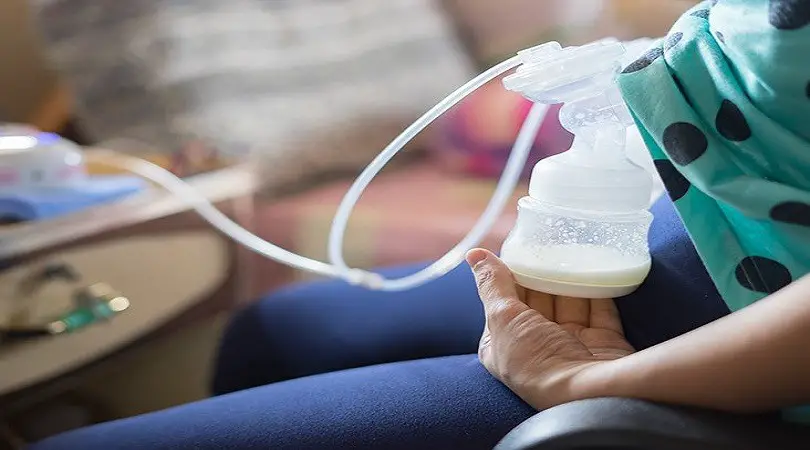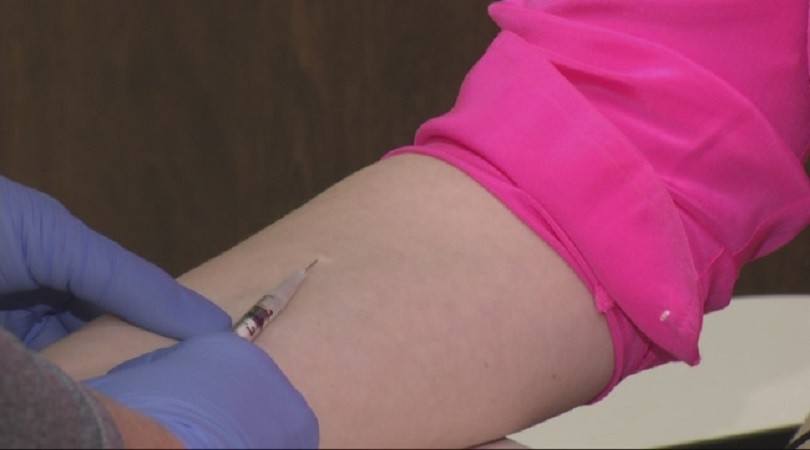Last Updated on January 6, 2025
Yes, it is possible to pump while pregnant, but it is important to consult with a healthcare provider first. Breast milk production can continue during pregnancy, and pumping can help maintain milk supply and relieve engorgement.
It is crucial to ensure that pumping does not cause any harm to the pregnancy or the expectant mother. Breastfeeding is a beautiful and fulfilling experience for both the mother and the child. However, it is essential to know that a pregnant woman may face several changes that can affect breastfeeding. Engorgement, nipple tenderness, and decreased milk production are common issues. Therefore, some breastfeeding mothers may opt to pump to maintain milk supply and prevent mastitis, a painful breast infection that can cause fever and body aches. Nonetheless, before making any changes to your breastfeeding routine, it is necessary to talk to your obstetrician or midwife to determine the best course of action for you and your growing baby. In this article, we will address some common concerns regarding pumping while pregnant.

Credit: www.austinregionalclinic.com
Related: Can You Get Lip Fillers While Pregnant?
Understanding The Safety And Efficacy Of Pumping During Pregnancy
Pumping during pregnancy is a question that’s often posed by expectant mothers who’re interested in breastfeeding but can’t be around their baby all the time. Is it safe? And how effective can it be? In this article, we’ll take a deeper dive into the safety and efficacy of pumping during pregnancy, examining the reasons why women want to pump while pregnant, as well as how pumping works.
What Is Pumping During Pregnancy?
Pumping during pregnancy is the act of using a breast pump to extract milk from the breasts of a pregnant woman before the baby is born. This is done for various reasons, including building a milk supply before the baby arrives, relieving engorgement, and providing milk for a baby who cannot be breastfed because of medical reasons.
Some key points to keep in mind include:
- Women can begin pumping during pregnancy as early as the second trimester.
- It’s essential to use a hospital-grade breast pump for the best results.
- The amount of breast milk that can be pumped varies from woman to woman.
How Does Pumping Work?
Pumping works by mimicking the way a baby suckles at the breast. When a breast pump is used, it creates a vacuum that draws the milk out of the breasts through the nipple and into the collection container.
- Breast pumps come in different models, including manual and electric models.
- Electric breast pumps tend to be the best choice because they extract milk quickly, produce less pain and don’t require much effort.
- Depending on the brand and model, breast pump parts will vary.
Why Do Women Want To Pump While Pregnant?
The reasons why women may want to pump while pregnant include:
- Using the milk to feed their baby if they can’t breastfeed.
- Building up a milk supply before the baby arrives.
- Relieving engorgement.
- Reducing the risk of mastitis.
- Creating lactation ease for mothers that want to tandem nurse with an older child.
Pumping during pregnancy is safe, and it can be a practical solution for mothers who want to breastfeed but can’t always be available. However, it’s vital to consult with your doctor or lactation consultant to develop an appropriate pumping schedule based on your specific circumstances.
Related: Can You Get Pregnant After An Ablation?
Factors To Consider When Deciding Whether To Pump During Pregnancy
Pumping breast milk during the pregnancy period could be a personal choice for some mothers. However, there are several factors to consider when deciding whether to pump during pregnancy.
Health Concerns And Risk Factors
Before deciding to pump, mothers should consider their health conditions, medical history, and hormonal changes. Some mothers may face health concerns such as gestational diabetes, high-risk pregnancies, or preterm labor, which could affect milk production and milk quality. It is essential to consult a healthcare provider before beginning pumping sessions to ensure that it is safe for both the mother and the developing fetus.
Physical Discomforts And Challenges
There could be some physical discomforts and challenges while pumping during pregnancy. Mothers may feel intense nipple tenderness, soreness, or pain due to hormonal changes and increased blood flow. It is also essential to consider finding a comfortable position while pumping to avoid straining the back or neck muscles.
It could be beneficial to invest in a good quality breast pump, which is designed for maximum comfort.
Personal Choices And Preferences
It is entirely up to the mother’s personal choice and preference to pump during pregnancy. Some mothers prefer to stockpile breast milk for later use while others may begin pumping to relieve engorgement or sore nipples. Each mother has her own unique pace and frequency that works best for her, and it is essential to find a routine that is comfortable and convenient.
Mothers should always make sure they have enough milk supply and do not overdo the pumping frequency. Over-pumping could lead to an increase in milk production, which could cause engorgement and other complications. As long as mothers carefully consider the factors mentioned above and consult a healthcare provider, pumping breast milk during pregnancy could be a safe and personal choice.
Tips For Pumping Safely And Comfortably During Pregnancy
Pumping during pregnancy could be a great idea if you’re interested in building a breast milk supply. Just like in breastfeeding, pumping helps stimulate milk production, allowing soon-to-be mothers to have enough milk for their little ones. However, it’s essential to pump safely and comfortably during pregnancy.
So, let’s dive into some tips that will help you do that.
How To Choose The Right Pump
Choosing the right breast pump during pregnancy is crucial as it can impact milk supply, comfort, and overall pumping experience.
- Consider the kind of pump you would prefer. Manual pumps are affordable and portable, while electric pumps are efficient and come in single or double options.
- Check product reviews to see what other customers have to say about the pump. Keep an eye on noise level, suction power, and ease of use.
- Opt for a pump with an adjustable suction option. During pregnancy, you may experience breast sensitivity, so having the ability to control suction strength is beneficial.
Pumping Methods And Schedules
Establishing a pumping schedule can help maintain a stable milk supply and prevent discomfort while pumping.
- Choose a time of day when you’re most comfortable. Most nursing mothers prefer mornings when milk supply levels are naturally high.
- Determine how much milk you would like to store. Start with an ounce or two and work your way up slowly.
- Set a timer for 10-15 minutes to pump. Doing this can help signal your body to produce more milk.
- If you start to feel uncomfortable or start experiencing braxton-hicks contractions, take a break and come back later.
Best Practices For Hygiene And Sanitation
Maintaining a hygienic and sanitized pumping environment is essential during pregnancy.
- Wash your hands before handling the pump and your breasts.
- Clean the pump after each use. Most pumps come with cleaning instructions; follow them closely.
- Don’t share pumps with other women. Breast milk carries pathogens that could be passed on to other children.
- Store milk in clean containers and freeze immediately upon completion of pumping.
Pumping during pregnancy is safe as long as you adhere to the tips mentioned earlier. Always prioritize comfort, sanitation, and follow your body’s cues.
Related: Can You Jump On A Trampoline While Pregnant?
Frequently Asked Questions On Can You Pump While Pregnant?
Can You Pump While Pregnant?
Yes, you can pump while pregnant. In fact, it may be helpful to start building a milk supply before the baby is born.
Is It Safe To Pump While Pregnant?
Generally, it is considered safe to pump while pregnant. However, it is important to check with your healthcare provider to make sure pumping won’t have any negative impact on your pregnancy.
How Often Should You Pump While Pregnant?
You can pump as often as you’d like while pregnant, but it is recommended to start with one pumping session per day and gradually increase as needed.
What Are The Benefits Of Pumping While Pregnant?
Pumping while pregnant can help stimulate milk production, build a milk supply, and help with the transition to breastfeeding after the baby is born.
Conclusion
Pumping while pregnant is possible as long as it is done safely and correctly. It is important to consider consulting with a healthcare provider before starting to pump during pregnancy, as they can provide valuable guidance and recommendations. If given the green light, investing in a quality breast pump and adhering to proper hygiene practices is crucial for maintaining breast health and ensuring a safe and successful pumping experience.
Additionally, it is important to listen to your body and adjust pumping frequency and duration as needed. With proper care and attention, pumping while pregnant can be a helpful tool for ensuring a smooth transition into breastfeeding after birth. Remember to prioritize your health and the health of your baby at all times.











